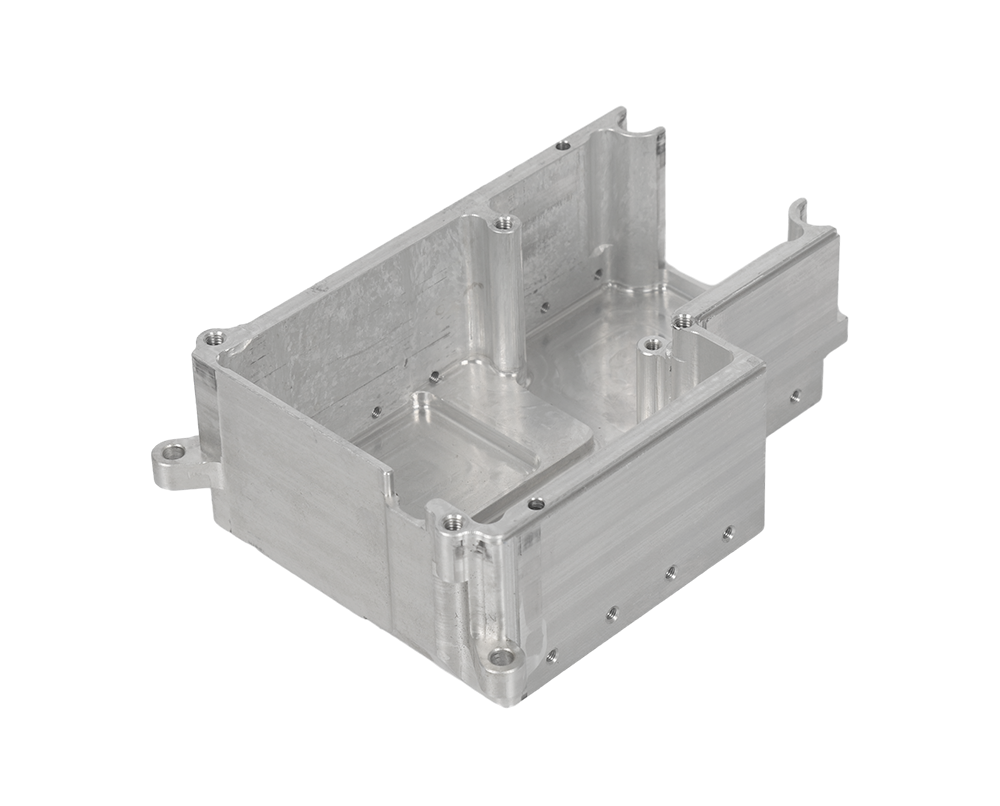2024-01-17 hits:0 source:News

Aluminum alloy die castings must undergo heat treatment during factory processing, and there are also many things to pay attention to during heat treatment. Firstly, it is necessary to control the heating temperature of the die casting, and secondly, it is necessary to ensure its insulation duration and not let it cool too quickly. When processing aluminum alloy die castings, it is important to maintain dimensional stability in order to achieve good results.
Annealing is the process of heating aluminum alloy die castings to a higher temperature, holding them for a certain period of time, and cooling them to room temperature. During the annealing process, decomposition occurs and the second phase particles aggregate, which can eliminate the internal stress of the die casting, stabilize the size of the casting, reduce deformation, and increase the plasticity of the casting.
Solid solution treatment is the process of heating aluminum alloy die castings to a high temperature close to the melting point of eutectic crystals, maintaining them at this temperature for a sufficient amount of time, and then rapidly cooling them to maximize the dissolution of strengthening elements. This high-temperature state is fixed and stored at room temperature, and this process is called solid solution treatment. Solid solution treatment can improve the strength and plasticity of castings, and improve the corrosion resistance of aluminum alloys. The effectiveness of solid solution treatment mainly depends on the following three factors.
1. Insulation time
The insulation time is determined by the dissolution rate of strengthening elements, which depends on the type, composition, structure, casting method, and shape and wall thickness of the alloy. The insulation time of cast aluminum alloy is much longer than that of deformed aluminum alloy, usually determined by experiments.
2. Cooling speed
The higher the cooling rate given to the casting during quenching, the higher the supersaturation of the solid solution preserved from the high-temperature state, thereby achieving high mechanical properties of the casting. However, at the same time, the greater the internal stress formed, the greater the possibility of deformation of the casting. The cooling rate can be changed by selecting cooling media with different heat capacities, thermal conductivity, latent heat of evaporation, and viscosity. In order to obtain the minimum internal stress, castings can be cooled in the hot medium.
3. Solid solution treatment temperature
The higher the temperature, the faster the dissolution rate of strengthening elements, and the better the strengthening effect. The upper limit of the general heating temperature is lower than the initial overburning temperature of the alloy, while the lower limit of the heating temperature should allow the strengthening components to dissolve as much as possible into the solid solution. In order to achieve the maximum solid solution strengthening effect, sometimes a graded heating method is used, which is to keep the temperature at a low melting point eutectic temperature, so that after the diffusion and dissolution of the components, the low melting point eutectic does not exist. Raise to a higher temperature for insulation and quenching. During solid solution treatment, attention should also be paid to the heating rate not being too fast to avoid deformation of aluminum alloy castings and the melting of low melting point structures that accumulate locally, resulting in overburning. The heat transfer time of solid solution heat treatment should be as short as possible to avoid the diffusion and precipitation of alloy elements and reduce the performance of the alloy.
Read recommendations:
lf you have any questions or comments, you can leave us a message and we will reply to you as soon as possible
